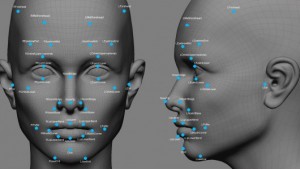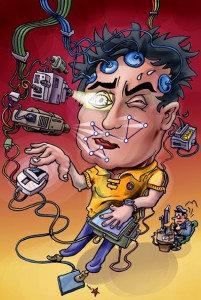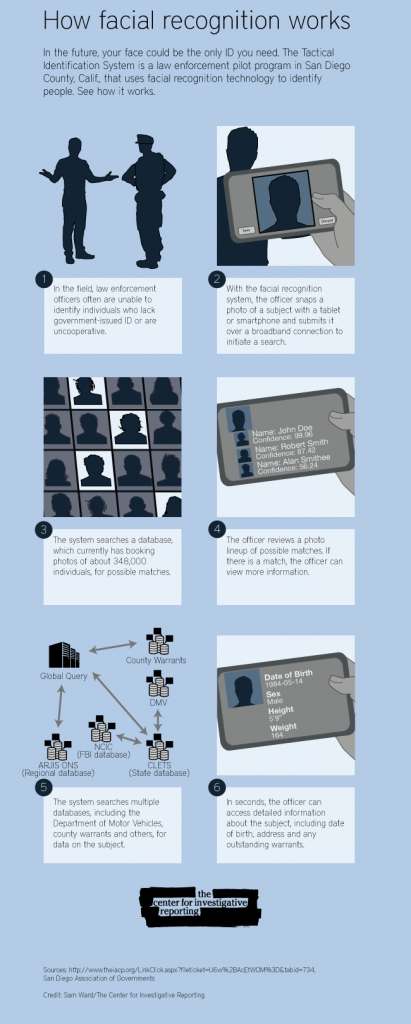aNewDomain.net — Is facial recognition the ultimate password? How easily can it be spoofed? The debate rages between engineers and biometric experts. The heated discussion comes at a time when companies like Apple and Samsung have employed basic biometric functionality (iPhone 5S, Samsung Galaxy s5), and large banks are looking to biometrics as an ATM authentication tool.
The FBI, meanwhile, launched its biometric program this summer. The EFF warns:
The FBI plans to roll out the face recognition component of its massive Next Generation Identification (NGI) biometrics database this summer—but the Bureau has six years of catching up to do in explaining to Americans exactly how it plans to collect, use and protect this data.”

Image credit: The Daily Sheeple
Facebook Wary of Facial Recognition
I hate biometrics. The reason I hate it is because I can’t change them. The only thing I can do is go die in a corner somewhere. One of the things you look for in credentials (presented to somebody) to authenticate is that they are revocable.”
Stefancik added that a lot of biometric security could be spoofed. He hopes Facebook, and others, will move to other hardware based authentication, like tokens or mobile phones.
Advanced surveillance and social media might seem like strange bedfellows. Until you look a bit closer, that is. Technologies developed for surveillance applications are typically designed with robustness in mind: that is, they should work reliably at all times in a variety of lighting conditions (indoor/outdoor) and effects (glare, saturation or shadows).
The reason for them being so robust, explained philosopher Giorgio Agamben, is:
In the eyes of power, every citizen is a potential terrorist. Never forget that the biometric apparatus, which will soon be inserted in every citizen’s identity card, was firstly created to control recidivist criminals.”
The Debate
Fan Foo, technology reporter, for The Australian writes:
The peak global body for biometrics has flatly rejected comments made by a Facebook security guru who claimed that biometric technology was worse than passwords.”

Image credit: Wellerman, Wikimedia Images
Meanwhile, American experts said biometrics has come a long way. The technology is being trialled as an authentication service for mobile banking apps, with tablet and TV manufacturers showing a keen interest in its uses.
Isabelle Moeller, who leads London-based Biometrics Institute, said the views expressed by Mr Stefancik did not provide the ‘complete picture.’ ‘Strong security relies on many factors of which a biometric can and does play an important part,’ Ms Moeller said. ‘Each security component has its vulnerabilities but together they build a much stronger link with your true identity.’ “
It’s Me, I Swear!
In light of all this, what does the frustrated password user actually say (or want) in this debate? The Orwellian Police State that our world is slowly turning into allows facial recognition software to crop up more and more. From the ever-encroaching Facebook photo recognition, to local police department and airport checkpoints. How do you feel?
See the infographic below explaining how facial recognition would work in our world.
For aNewDomain.net, I’m David Michaelis.
Based in Australia, David Michaelis is a world-renowned international journalist and founder of Link Tv. At aNewDomain.net, he covers the global beat, focusing on politics and other international topics of note for our readers in a variety of forums. Email him at DavidMc@aNewDomain.net.














I love the way tech companies always search for solutions to non-existent problems. Its just a way to sell more crap and become more intrusive to give business more inroads to your privacy. Plus, your face changes due to mood, time and health.